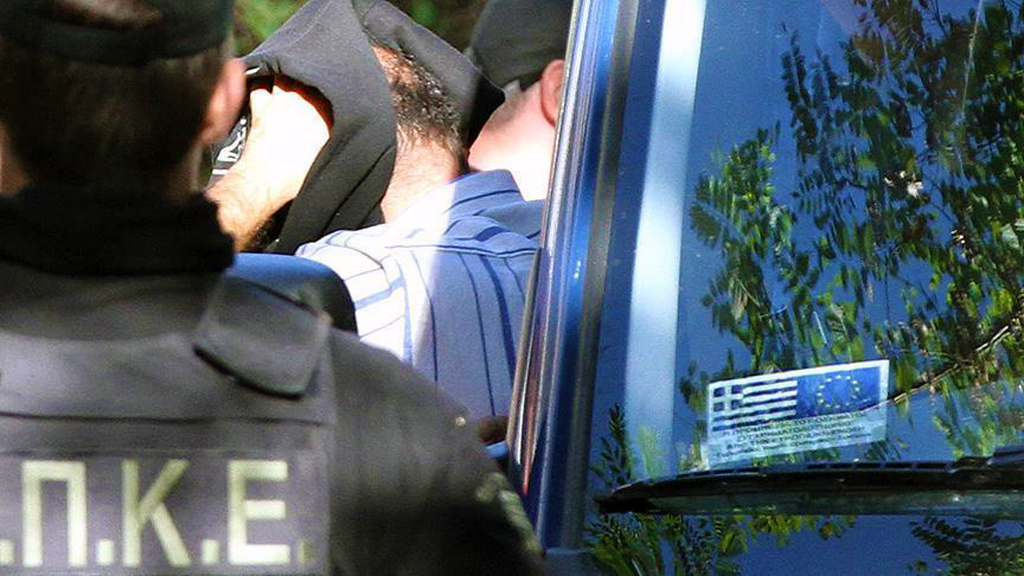
For an honest conversation, Greece must extradite terrorists
In an interview with The Washington Post last week, Greek Prime Minister Kyriakos Mitsotakis said that if Turkish President Recep Tayyip Erdoğan "wants an honest conversation with the European Union, the best way would be to stop threatening to send hundreds of thousands of refugees to its shores." "We can have an honest discussion with President Erdoğan," he added. "He needs financial support."
Share
In an interview with The Washington Post last week, Greek Prime Minister Kyriakos Mitsotakis said that if Turkish President Recep Tayyip Erdoğan "wants an honest conversation with the European Union, the best way would be to stop threatening to send hundreds of thousands of refugees to its shores." "We can have an honest discussion with President Erdoğan," he added. "He needs financial support."
Mitsotakis takes issue with Erdoğan's proposal to resettle one to two million refugees in northern Syria: "Erdoğan wants a buffer between Turkey's Kurds and Syria's Kurds – a safe zone populated by Sunnis. That's his goal." The United States and Europe, he says, are unlikely to support that plan. Instead, Mitsotakis wants the international community to raise more money for Turkey to keep hosting Syrian refugees within its borders.
Sometimes, when European leaders talk about an "honest conversation," it puts a bitter smile on one's face. This was one such occasion. The Greek prime minister suffers from shortsightedness – an inability to acknowledge problems until the very last minute and an eagerness to deny one's own responsibility.
Skimming through the Mitsotakis interview, one would think that Erdoğan hasn't been urging Europe and the rest of the world to facilitate a peaceful solution to the Syrian conflict. Ignoring the Turkish president's words about his country's inability to shoulder the burden of hosting Syrian refugees, the Greek premier misrepresents a mere statement of facts as a threat. Likewise, he finds insincere Turkey's push to relocate refugees to a joint Turkish-American safe zone. Conveniently ignoring the terrorist organization PKK/YPG's (People's Protection Units, the PKK's Syrian affiliate) ethnic cleansing campaign in northeastern Syria, Mitsotakis also tries to hide the fact that hundreds of thousands of Syrian Kurds still live in Turkey, unable to return to YPG-controlled areas.
That Mitsotakis, whose country remains a prime destination for refugees from Afghanistan, Syria, Iraq and even Africa, fails to grasp his need to cooperate with Erdoğan, too, is quite curious. Nor is it possible to see why he thinks throwing money at the refugee problem will necessarily solve it.
To be clear, Turkey isn't just telling the world that it will have to open the floodgates. It also has a plan to resettle refugees in safe zones, where it pledges to create humane conditions. The Turks know full well that opening the floodgates alone will encourage more immigrants from Afghanistan and Iran. The bottom line is that Turkey doesn't want to be a transit route or a storage unit where Europe can keep its refugees.
Still, the Greek premier's call for an "honest conversation" deserves attention. Let us recall that the European Union's contribution to humanitarian relief efforts, 6 billion euros ($6.6 billion), is nowhere near Turkey's own spending – roughly $40 billion. There are many questions for Mitsotakis to answer, but let's start with a basic one: why won't Greece live up to its responsibilities and extradite known PKK and Gülenist Terror Group (FETÖ) operatives to Turkey?
[Daily Sabah, 30 September 2019]
Tags »
Related Articles






